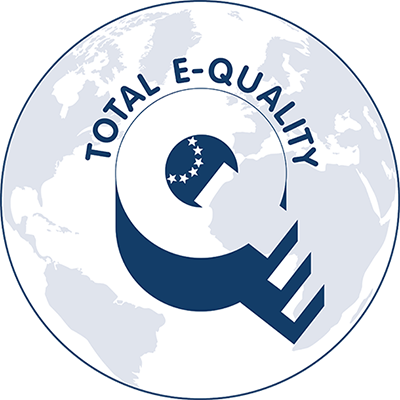Electronic self-archiving
What are the key issues to consider when self-archiving publications in open access repositories (including document servers and online archives) or on websites?
Self-archiving is a method of providing open access to academic publications that have already appeared in a non-open access journal. Self-archiving is also known as green open access.
There are different options for self-archiving:
- Depositing articles in an institutional or subject repository
- Making articles available on a dedicated website
There are two primary disadvantages to this latter option: it does not guarantee digital preservation, and the publication is less visible to the academic community than articles incorporated in institutional or subject repositories. In contrast, the decision to deposit an article in an institutional or subject repository will mean it can be discovered through other search services such as BASE. We therefore recommend using a repository to self-archive your work. You can then provide a link to this on your own website and in your ORCID profile.
Submitting an article to a journal generally involves transferring comprehensive rights of use to the publisher. Consequently, It is necessary to obtain the publisher’s consent before self-archiving the work. Many publishers permit self-archiving if certain terms and conditions are met regarding the timing of self-archiving, article version or place of publication. These conditions are governed by the contract concluded between the author and the publisher prior to initial publication. We recommend clarifying this point with the publisher in advance. Information on this topic may also be available on the publisher’s website.
The Sherpa Romeo database provides a basic overview of the terms and conditions individual journals and publishers apply to the self-archiving process. Nonetheless, it is always advisable to verify this information on the publisher’s own website since any recent changes may not yet have been incorporated in Sherpa Romeo.
See also
Policies on self-archiving: where can I find information on journals issued by different publishers?
Author agreements (publication agreements): which aspects are relevant?
Embargo periods
Most publishers permit authors to self-archive their work after a specified embargo period of between six and 24 months. This provides a way of making publications open access at a later point in time, even if they were not originally published in an open access journal.
Article versions eligible for self-archiving
Permission for self-archiving does not generally extend to the version of record. In many cases, consent will only be granted to self-archive the final version of the manuscript, which contains all the changes from the peer-review process but is not set in the publisher’s layout. As a rule, publishers require clear reference to be made to the original article by citing the full bibliographic information, including the DOI link.
See also
Preprint, postprint and version of record: what do these terms mean?
Policies on self-archiving: where can I find information on journals issued by different publishers?
Repositories eligible for self-archiving
Some journals also have a specific policy on which repositories may be used for self-archiving. Institutional and subject repositories are normally permitted as long as no commercial interests are involved. This non-commercial requirement typically excludes academic social networks such as Research Gate as well as platforms such as GitHub, since these have an economic interest and are not regarded as repositories in the true sense of the word. Articles may only be deposited with these kinds of platforms if an agreement has been concluded between the publisher and the platform that specifically allows self-archiving. Should you decide to choose a social network or a platform, we therefore recommend checking in advance whether the publisher and the platform have signed a corresponding agreement and, if so, whether articles are uploaded automatically or whether authors must carry out this task themselves.
Some research funding organisations also recommend a particular repository or require a certain repository to be used as a condition of funding. Once again, authors should check in advance whether any such restrictions apply.
See also
Document servers, online archives and other repositories: which is the most suitable repository for your publication?
Funding: what requirements do funders impose in regard to open access?
Legal provisions regarding self-archiving
The amendments to the German Copyright Act in 2014 offer a solidly based legal framework for the self-archiving process. Essentially, the amendments state that the author of a scientific work produced during scientific research which received at least half its funding from public sources – and which was published in a periodical that is issued at least twice a year – retains the right to make the accepted manuscript publicly available after an embargo period of 12 months from the date of the first publication, as long as this is not for commercial purposes. This applies even if the author has transferred an exclusive exploitation right to the publisher or editor. The clause states that the source of the first publication must be given (§ 38 (4) of the German Copyright Act, UrhG).
The exclusive exploitation right is nevertheless retained by the publisher. For the purposes of self-archiving, authors are simply granted the basic right to deposit their publication once in a repository.
The German provisions on self-archiving only refer to the electronic deposit of the publication, hard copies are not allowed. Authors are free to choose the place for their deposit but in order to avoid complications they should make sure that German law is applicable.
This right to self-archive a work that has already been published is inalienable. It voids any agreements concluded between an author and publisher that are detrimental to the author, such as provisions attempting to restrict self-archiving.
This amendment to the German Copyright Act primarily affects copyright holders whose institutions form part of the four major research organisations (the Fraunhofer Society, the Helmholtz Association, the Leibniz Association and the Max Planck Society) and members of other non-university research organisations, since these are the only academics who receive institutional funding. It does not apply to academics who are permanently employed at universities unless the publication has arisen as part of a publicly funded project (e.g. in the course of internal university programmes, third-party funding from public funds). Current interpretation conclude that the amendment can also be applied to all publications emanating from university research - see post on emailing list IP-OA_Forum on October 25th 2017 (German only): Got to text
Consent for electronic self-archiving must always be obtained from all the authors unless the decision-making rights have been transferred to the corresponding author or the rights to exploit the work have been ceded to the institution. Co-authors may not withhold their consent without good cause.
The self-archiving process is generally governed by an agreement made between the author and the operator of the repository. In some cases the agreement is concluded by the institution.
Advice regarding the self-archiving of those publications not covered by the amendments to the German Copyright Act mentioned above can be found in the brochure “Zweitveröffentlichungsrecht für Wissenschaftler: Geltende Rechtslage und Handlungsempfehlungen“ by iRights.Lab (in German).
Other aspects to consider
Consent for electronic self-archiving must always be obtained from all the authors of the work unless the decision-making rights have been transferred to the corresponding author or the rights to exploit the work have been ceded to the institution. Co-authors may not withhold their consent without good cause.
Self-archiving generally requires the signing of a contract between the author and the institution that runs the repository. In some cases, the institution at which the authors work may handle the conclusion of this contract.
Depositing a version of an article in a repository offers the reassurance of knowing that the work will remain accessible and citable. Should you wish to self-archive a work in multiple repositories, we once again recommend checking in advance whether the publisher permits this.
See also
Author agreements (publication agreements): which aspects are relevant?
Disclaimer
Important note: The information and links provided here do not represent any form of binding legal advice. They are solely intended to provide an initial basis to help get you on the right track. ZB MED – Information Centre for Life Sciences has carefully checked the information included in the list of FAQs. However, we are unable to accept any liability whatsoever for any errors it may contain. Unless indicated otherwise, any statements concerning individual statutory norms or regulations refer to German law (FAQ updated 04/2023).
Contact

Dr. Jasmin Schmitz
Head of Publication Advisory Services
Phone: +49 (0)221 999 892 665
Send mail
References
Hartmann, T. (2017). Green OA mit Zweitveröffentlichungsrecht gem. § 38 Abs. 4 UrhG. 15 October 2017, ipoa-forum. (accessed 29/11/2022) (German only)
Related links
BASE - Bielefeld Academic Search Engine
Open Policy Finder (Formerly Sherpa Services)
German act on copyright and related rights of 9 Semptember 1965, last amendmends on 23 June 2021 (BGBl. I S. 1858), Bundesministerium für Justiz. (accessed 29/11/2022)
Bruch, C. & Pflüger, T. (2014). Das Zweitveröffentlichungsrecht des § URHG § 38 Abs. URHG § 38 Absatz 4 UrhG – Möglichkeiten und Grenzen bei der Anwendung in der Praxis. Zeitschrift für Urheber- und Medienrecht, 58(5), 389-394. (German only)
Spielkamp, M. (2015). Zweitveröffentlichungsrecht für Wissenschaftler: Geltende Rechtslage und Handlungsempfehlungen. iRights.Lab, Policy Paper Series Nr. 1. (German only)




